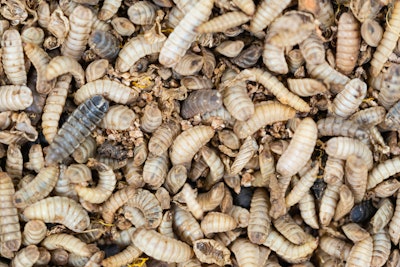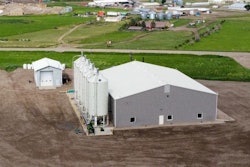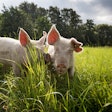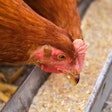
University of Leeds senior innovation fellow Gesa Reiss feels the U.K. has fallen a bit behind in researching potential uses for insects in agriculture. She doesn’t intend to waste any time catching up.
The university’s research farm is set to receive a 40-foot insect bioreactor — a prototype built by insect technology company Entocycle that will allow researchers to experiment with insect rearing in a commercial setting, but at a smaller scale than seen in industrial insect farms. Reiss plans to cut straight to the chase: the bioreactor is primarily intended to help her team collect data to determine whether insects raised on animal manure might be safe to use in animal feed.
But that, she anticipates, will take at least five years. So in the meantime the university also plans to investigate best practices for raising and breeding insects, how insects might fit into a carbon-free farming operation, and even insect welfare.
“My personal interest is really to make sure we don’t produce another farming system that exploits the farmed species, so I am working with my colleagues to see if the insect species used for commercial production are sentient,” Reiss said. “And if they are...how to make sure that insect welfare is maintained.”
Insects, Reiss said, are still an emerging opportunity for farmers, but the U.K. has fallen somewhat behind its neighbors in the EU like France and Germany in researching and developing an insect production industry. Her main hope, she said, is that including insects in animal diets will reduce the need for the U.K. to import soy, which she notes is one of the primary drivers for the size of the carbon footprint of livestock production.
However, the university also has a interest in agricultural waste management. The university’s research farm hosts the National Pig Center, and like many other pig producers, is increasingly faced with challenges surrounding the management of manure. The slurry from the pig farm contains not only nutrients but potentially harmful organism, including antimicrobial resistant bacteria. Producers have a desire to manage this waste in an environmentally responsible way — one that might capture some of the surplus nutrients the slurry contains. And they want to avoid fines for improper disposal, which Reiss noted can be quite steep, even for the university.
Manure could provide insect producers with a cheap and abundant feedstock, but comes with concerns about whether the insects might pick up some of the harmful components of the waste slurry, including pathogens and heavy metals. So the University of Leeds team plans to collect data on what, if any, of these contaminants are picked up by the insects while rearing black soldier flies on manure from the National Pig Center. They’ll also conduct experiments such as evaluating the energy consumed when manure is provided directly to the files, compared to processing the manure in an anaerobic digester before it is presented to the flies, Reiss said.
But even if the insects do have a tendency to pick up contaminants from waste, the research won’t be wasted, Reiss said. In this case, the insects could still have an application in environmental remediation—perhaps sucking up contaminants in the waste and rendering the waste itself safe for applications in fertilizers in the like. And there might be uses for the insects themselves outside of animal feed that wouldn’t carry the same risks, like the production of oil for lubricants, that could be explored, Reiss said.













